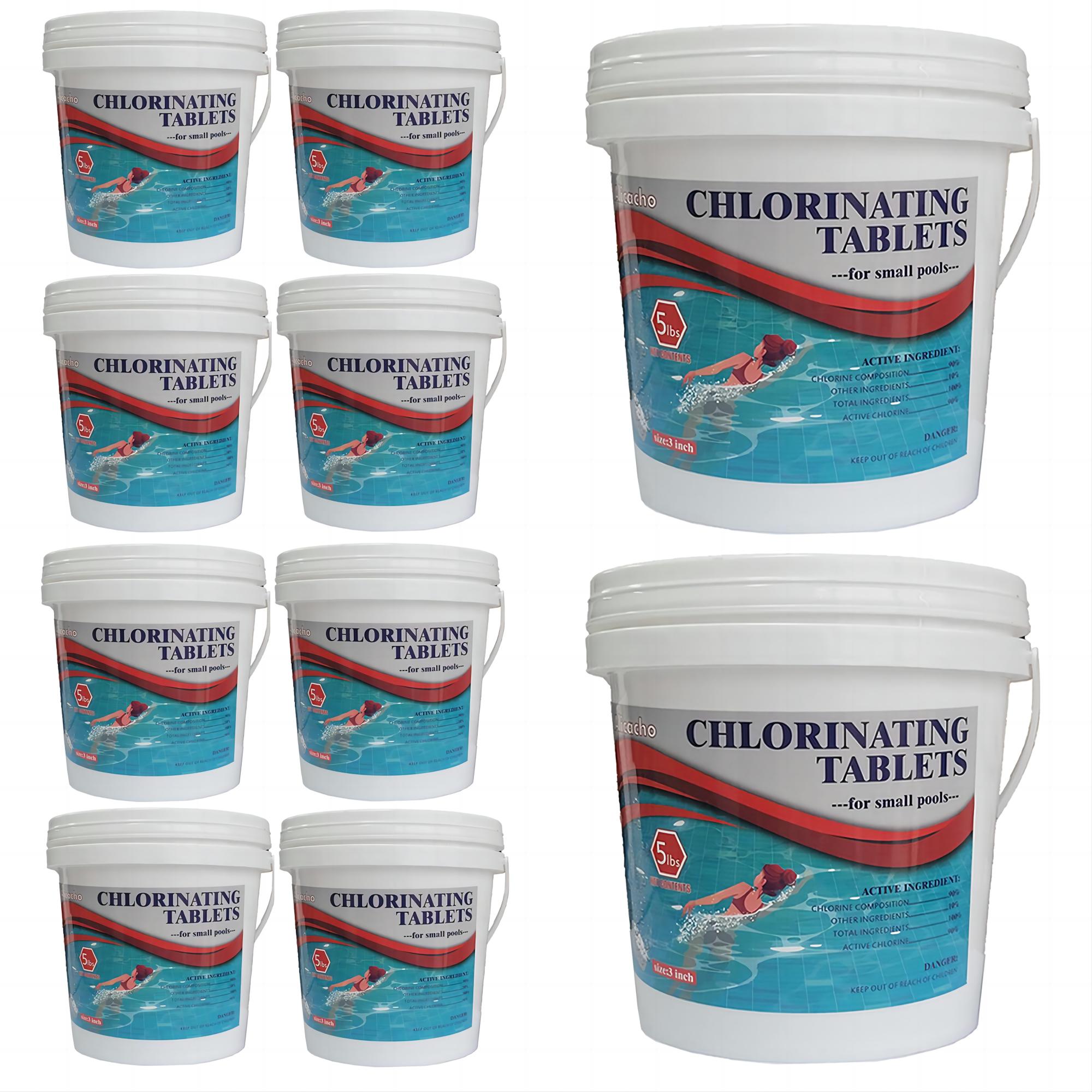Many pool owners may wonder about possible answers to the question, does pool chlorine go bad, and so can other pool chemicals we use? Well, it is one of the most important facts to ponder since many chemicals are involved in maintaining our pools, especially chlorine.
In this article, we will gather ideas that can help new and existing pool owners about chlorine and its expiration, and things that you have to do about it. By being able to figure out such things, there can be lots of advantages such as proper utilization of chemicals leading to saving money, thus resulting in very cost-efficient maintenance methods.
Part 1. Do Pool Chemicals Have Expiration Dates?
When you purchase something from the grocery store for your family to consume or for your household use, it is common to look for the “best before” dates or the expiration dates. By doing so, you are practicing good utilization of things you buy for the family. Well, if you own a pool, it is also the same. You may also think of questions like, does pool chlorine go bad after some time, and so as other chemicals that you use and store for your pools?
When you read the labels of chemical products you buy, it is a must to always look at the storage conditions, this is very important if you intend to store them for reasons like your house is too far from the store, and a lot more. There are conditions that chemicals must be stored in cold, dry and even dark spaces or rooms to be able to prolong their shelf life and use. By doing so, you are ultimately saving bunches of money which you can use for other pool essentials shortly.
One of the most common chemicals used in pools is called chlorine. Of course, it is also like other pool chemicals that you have to store properly. If the chlorine is in tablet form, it can deteriorate faster if you leave it for too long or store it in an inappropriate place. Once you store them well, they can last up to five years, or even longer. Well, chlorine tablets are easy to store since they will not need such a large space, they are available as 1-inch or 3-inch tablets. They are also wrapped in individual plastics and have 90% chlorine in their composition, which are factors slowing down possible deterioration.
If you are going to compare chlorine tablets to other forms of chlorine, they have a longer shelf life. If you also maintain their storage place’s temperature in the range between 50 degrees and 70 degrees Fahrenheit or between 10 and 21 degrees Celsius, they can be able to retain 98% of their initial chlorine concentration. They are also said to be more stable if you store them in a tightly sealed bucket that is placed in a cool, dry, and well-ventilated space.
On the other hand, if you have granular type of chlorine, they can last longer if you keep them in airtight containers that are dry and cool, they can last for an average of five years. But if you store them improperly, and expose them to humidity, there is a possibility that they will dissolve in less than 2 years.
Sodium hypochlorite or liquid chlorine can be said as the most unstable form of chlorine to store. If stored within six months, it can already lose its potency to almost 50%, and may even lose 90% of it a year after. It can even degrade or deteriorate faster if you store it in inappropriate locations such as those that are exposed to cold and hot temperatures or extreme sunlight.
Other pool chemicals like cyanuric acid, clarifiers, algaecides, sodium bicarbonate, muriatic acid, soda ash, and a lot more have their working and storing conditions that must be put into consideration. By knowing such facts, you can avoid excessive loss since you can be able to control it already based on factors like cost, the location of your pool, and the condition of your storage areas.
Part 2. How Do You Handle Expired Pool Chemicals?
As much as it is important to figure out answers to, does pool chlorine go bad, as well as other pool chemicals, as much as it is important to also know how to handle them once they expire. Well, these chemicals are considered volatile, and it must be noted that they should not be left outside in the trash cans that are collected by garbage trucks. Proper disposal of such chemicals particularly chlorine must be understood well. There are lots of possible ways to do it, and these are:
- Get help from your local household hazardous waste management facility.
- In case the area you live in does not have a household hazardous waste management facility, you can contact your local pool store, and ask how can you dispose of expired chlorine.
- You can also get help from your local solid waste authority.
- And lastly, there is also an option for you to ask for help from your local authorities.
On the other hand, in case you feel that the options above are too bothersome, there are alternatives that you can try, and these are:
1. Donate the chlorine in case it is not yet past the date or has not yet fully expired. There are possibilities that there are also local pools within your area run by locality, well with the price of chlorine, it will be surely appreciated by your local community pools!
2. You can also try to purchase in small batches if you are aware that you do not have a perfect place to store your pool chemicals. This is way better than having tons of them being expired due to improper storage. This is advised even if you are far away from your local pool store, and better than wasting too much money on your expired chemicals.
3. To prevent chlorine and other pool chemicals from getting bad, you have to store them properly, to give you some tips on how, check the items below:
- You have to make sure that your storage place is cool, dry, and away from sunlight and humidity.
- Make sure that your place of storage is well-ventilated.
- Always make monitoring logs to keep track of the expiration dates.
- Relatively consistent temperatures must always be observed in your storage area, it should not get too hot or too cold.
- Do not let your chemicals have contact with water.
- Do not try to mix different chemicals when storing, make dividers, and also make sure that there is enough space for everything.
- Avoid repacking or transferring chemicals unless you will use them as soon as possible. It is advised to always use the original containers of chemicals.
- When monitoring your chemicals, always check their containers, there are instances that plastic can be eaten by the chemicals themselves.
- You have to ensure that your place of storage is away from your pets and children. Chemicals should always be kept out too far from the reach of your children and pets
As long as you follow all the instructions given above, it can be assured that your pool chemicals can last long, or can be handled well even if their expiration come
Part 3. FAQs
1. Can You Flush Down Chlorine in the Toilet?
This is an absolute no! Now that we can answer the question, does pool chlorine go bad, chlorine can now be handled well. Once you flush down chlorine in your toilet bowl, it is also the same as disposing of it in a garbage can. You can still consider it as a hazard to the environment, and may even result in problems in your plumbing system.
2. Can Expired Chemicals Still be Used?
It is not advised to use expired chemicals. Once a chemical expires, its effectiveness diminishes. If you use it in your pools, it will not affect the water chemistry of your pool. There are also possibilities that accidents can happen while using it and may cause burns, skin problems, and even health conditions as the worst effect. Also, it is really hard to balance water chemistry, and using expired chemicals may worsen it, it is also against the safety regulations that any pool owner must follow.
3. How do You Know that Your Chemical has Expired?
Aside from the monitoring of expiration dates or when you acquire them, you can determine if a chemical has already expired based on its physical appearance. You can check its color, and product conditions, if a chlorine tablet is already crumbly, it is likely expired.



